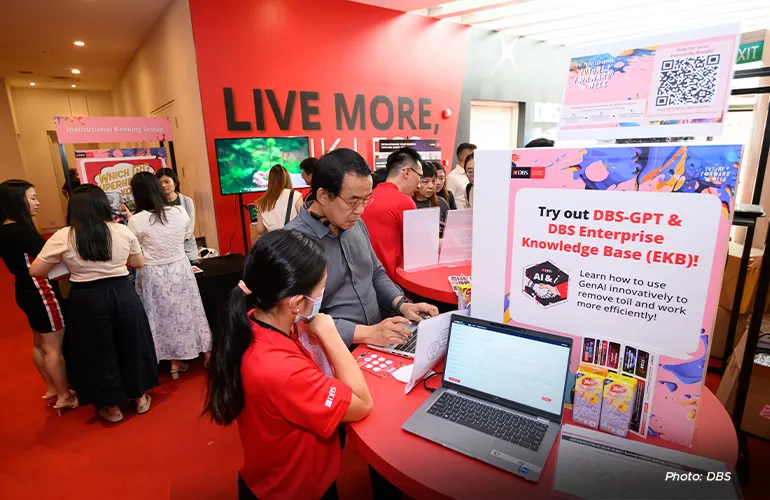Estimates by The McKinsey Global Institute in 2024 suggest that AI could add up to US$340 billion (S$450.7b) in annual value every year to the global banking industry1.
To this end, Singapore-headquartered DBS bank had the foresight to seize the advantages afforded to pioneers and early adopters of digital technologies, like AI, a full decade before. And the bank accomplished this from an established tech node in Southeast Asia — Singapore.
DBS’ Chief Data and Transformation Officer, Nimish Panchmatia explains: “Singapore has advantages [such as] a world-class education system with leading institutions of higher learning, strong investments in R&D, and a supportive ecosystem enabled by progressive regulations that enable innovation to thrive.”
Incidentally, DBS’ journey in AI adoption has already begun yielding positive results. The bank has identified over 370 AI use cases and 1,500 models implemented as of 2024.
It had also reported a significant economic impact of S$750 million in cost savings and value-add derived from AI in 2024 alone. The bank's success story underscores the potential of AI to drive innovation, enhance customer experiences, and deliver tangible business value.
BUILDING AI WITH ‘PURE’ INTENTIONS
But these successes did not happen overnight, nor did the bank adopt a broad-based approach to investing resources in all identified use cases at once. Instead, the bank ensures its AI initiatives are closely tied to its overall business objectives and this is further complemented by a framework for approving use cases.
As AI solutions rely heavily on vast amounts of data, the bank needed a solution to help its groups and divisions navigate vital decisions concerning data usage and use case development. This culminated in the bank’s "PURE" framework in 2018, which ensures that DBS only embarks on formulating AI use cases that are:
- Purposeful in its use of data.
- Unsurprising in its use of data from the customer’s (organisation’s and/or individual’s) point of view.
- Respectful in its use of data with due consideration given to social norms.
- Explainable in its rationale for the use of data; the how and why of the AI model’s data use should be explainable to the bank’s customers.
Nimish notes that since its implementation, all bank employees must undertake a mandatory e-learning curriculum to familiarise themselves with the PURE framework.






